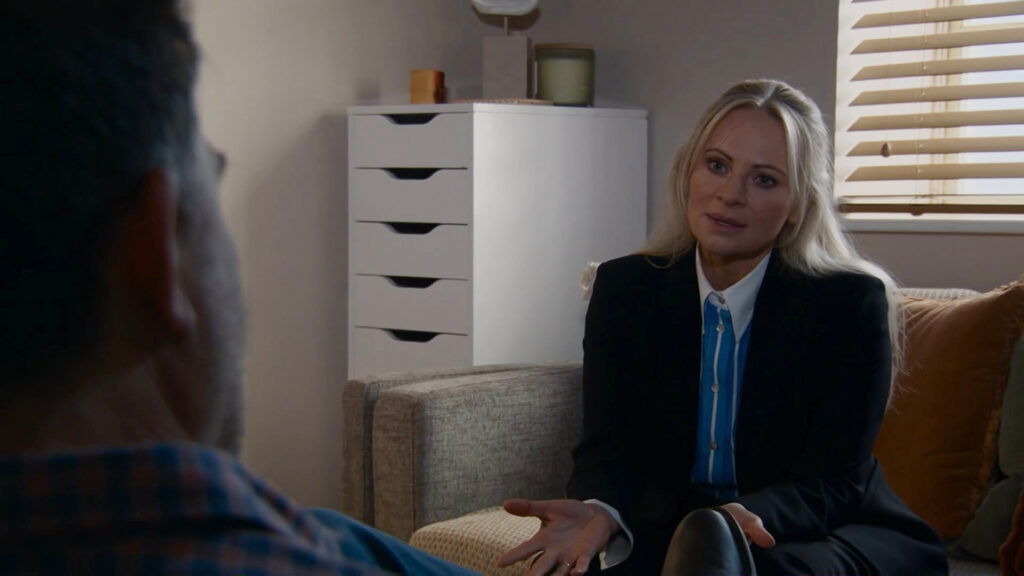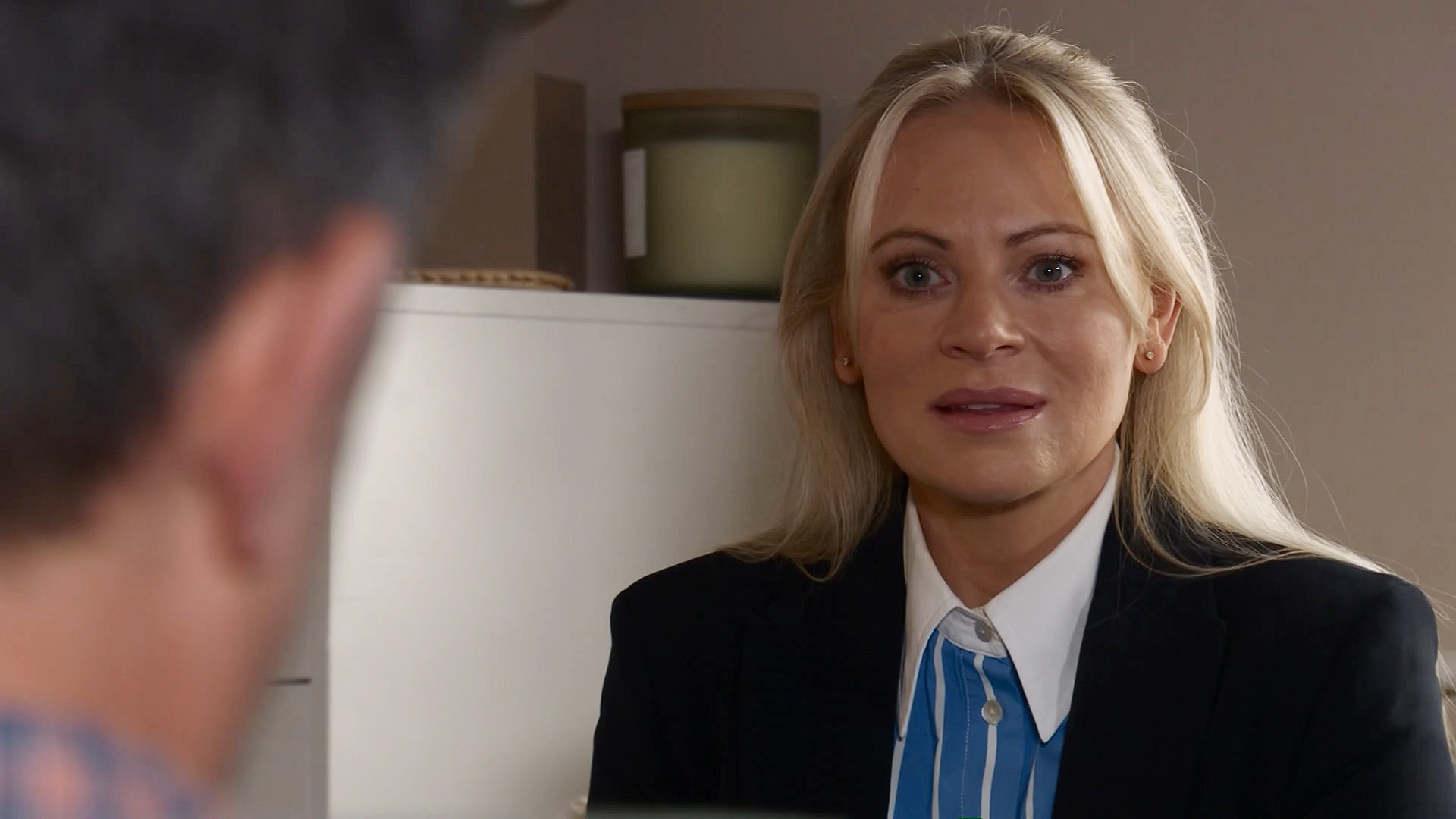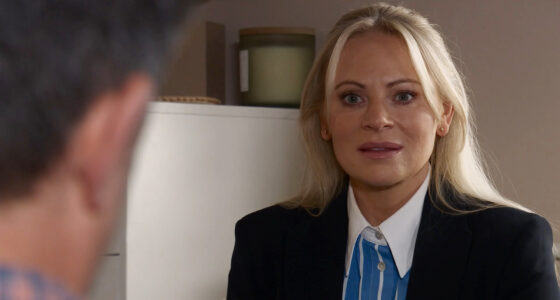Through grief, single motherhood, and the gentle nudge of a loving partner, Lisa’s emotional journey on Coronation Street shows us that healing doesn’t have to look perfect to be powerful.
Seeing a character go to therapy on screen can be an incredibly moving experience, especially when it’s done right. And let’s be honest, soap operas haven’t always nailed the mental health narrative. But Coronation Street is changing that with Lisa’s story. It’s raw, it’s honest, and sometimes it’s almost too real. Which, frankly, is exactly why it matters.
Lisa didn’t set out to be a poster woman for emotional resilience. She was just trying to survive.
After the tragic loss of her wife, Becky, Lisa’s world collapsed. One moment she was planning family weekends and arguing over takeaway menus (although we have recently learnt that they weren’t on the best of terms for a while before Becky died), and the next, she was in unimaginable pain. As a single mum, she had no choice but to keep going, for her daughter Betsy’s sake. But let’s be real: “functioning” and “coping” are not the same thing. Lisa was surviving, yes, but barely.
Enter Carla Connor.

Carla showed up like the emotional equivalent of a nice mug of tea and a hug wrapped in a kimono. She didn’t sweep in to save Lisa. She didn’t try to offer something superficial or pretend that everything was fine. What she did do was listen. Sit beside her. Try to help when things got overwhelming. And, crucially, she gently encouraged Lisa that talking to someone professionally (despite it being mandated by her superior officer), may actually do her the world of good.
At first, Lisa brushed it off. Therapy? That was for other people. People who were falling apart. People with time to sit on couches and talk about their feelings, not single mums trying to work a full time job at the same time as look after a teenager. But Carla never pushed too hard, and when Lisa finally admitted that she wasn’t going to put up a fight against counselling, Carla couldn’t have been more proud.
Walking into that therapy room wasn’t some big, life-changing moment. Just Lisa, showing up. Tense. Uncertain. Sarcastic. She would clearly rather have been anywhere else, but showed up all the same. And honestly, that was the bravest thing she’d done since Becky’s death.
Lisa’s first therapy session was mostly awkward silences, talk about house plants, and polite dodging. When the counsellor brought up Becky, Lisa tensed. She didn’t want to go there. How could she, when looking back she’s now even sure she truly knew her wife?

There was too much she hadn’t unpacked, too many questions she wasn’t ready to ask. So she shut it down, and the second the clock hit the hour, she was out the door. It wasn’t cathartic, but it was something. A start. And I truly hope they continue to show these sessions, it’s beyond powerful to see them on screen.
Lisa’s journey is so important because it challenges the idea that therapy is a last resort, or something to be ashamed of. Her story shows us that healing isn’t about big breakthroughs, it’s about the quiet decision to keep going. To ask for help. To let someone in. That the smallest moments can actually be some of the biggest.
And for viewers who’ve lost someone, who’ve raised children on their own, who’ve pushed through day after day with a smile plastered on and a heart full of hurt, Lisa’s story truly resonates. Because it doesn’t promise a perfect ending. It offers something better: hope that even in the messiest, most human moments, there’s strength. There’s love. And there’s the possibility of peace.
So here’s to Lisa, reminding us all that it’s okay not to be okay. It’s more than okay to ask for help. And it’s absolutely okay for your healing journey to be a rollercoaster ride.
Swarla HQ xo
Images copyright of ITV


